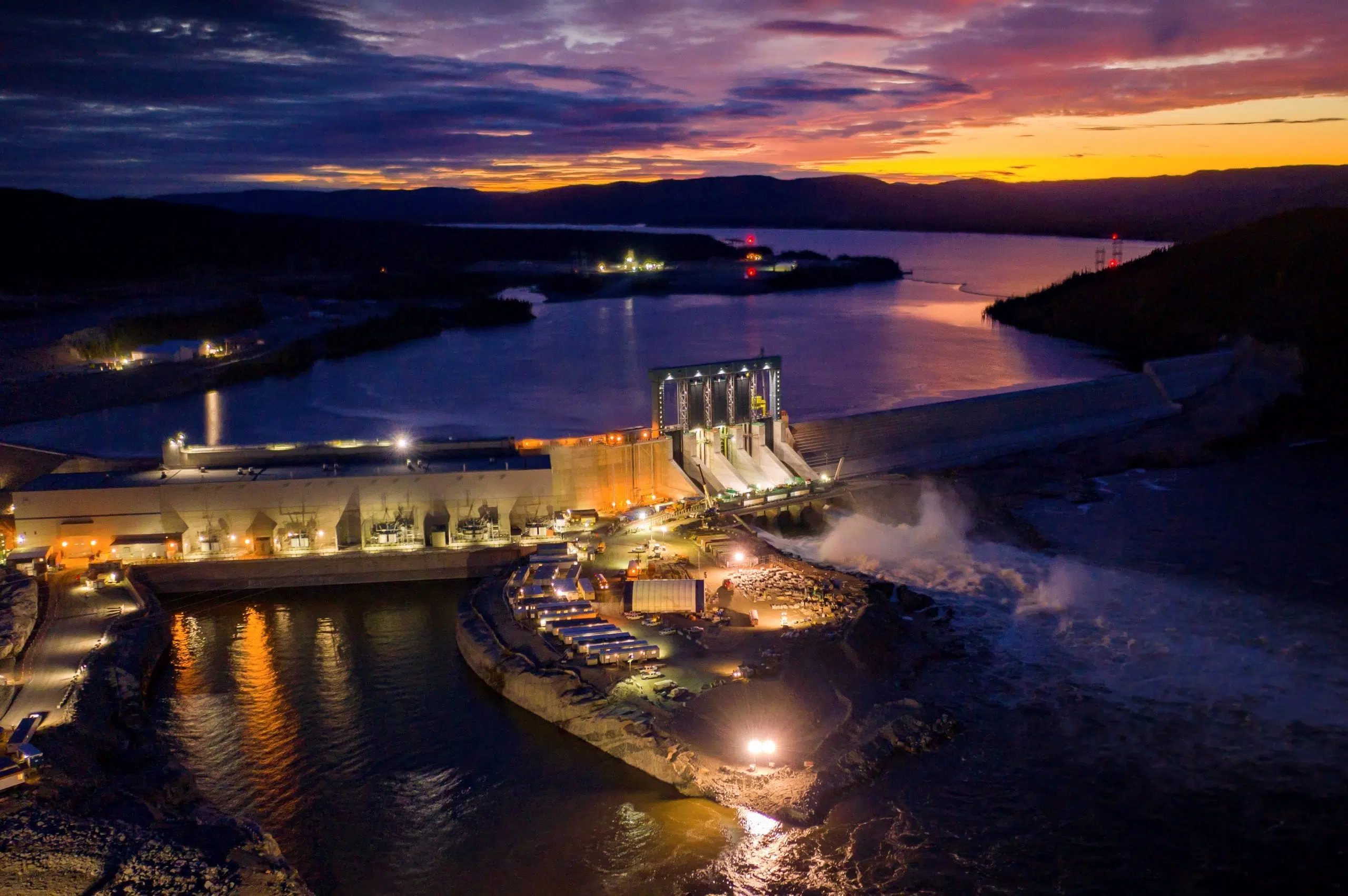
Muskrat Fall hydro electric dam in Labrador. Photo: NALCOR.
The Nova Scotia Utility and Review Board (UARB) delivered a significant blow to Halifax-based Emera as they increased the financial penalty for the company’s failed deliveries of hydroelectricity from the Muskrat Falls power-generating project in Labrador. In a ruling issued on Wednesday, the UARB decided to double the monthly holdback imposed on Emera, now set at $4 million, starting in December. This decision comes as a result of persistent doubts regarding the reliability of electricity from Muskrat Falls and its potential impact on Nova Scotia ratepayers.
The holdback, initially introduced in 2018, diverts money from Nova Scotia Power, which is then utilized to offset its fuel expenses. This is particularly relevant when Nova Scotia Power must generate replacement electricity due to unmet hydroelectricity delivery targets from the Muskrat Falls facility. The holdback serves to protect consumers who have been covering the costs of the $1.5-billion Maritime Link.
Emera had contended that the penalty, previously set at $2 million per month, should be entirely eliminated, citing recent improvements in electricity flows. However, the UARB disagreed, indicating that a more prolonged period of consistent performance is necessary to confirm the Maritime Link’s ability to deliver energy at the levels originally envisioned.
The holdback will persist until Nova Scotia has received a full 12 months of uninterrupted hydroelectricity from Muskrat Falls. This decision has raised concerns about the reliability of the power generated at Muskrat Falls and its potential impact on Nova Scotia’s ratepayers.
In response to the ruling, Emera stated they were reviewing the decision. Emera spokesperson Dina Bartolacci Seely emphasized the recent strong performance of the Maritime Link and its benefits to customers. She noted that this year, the Maritime Link has delivered over one million megawatt hours to Nova Scotia, surpassing contractual requirements at 115 percent, and has provided an additional 250,000 megawatt hours of market-priced energy.
The Maritime Link, an overland and undersea electrical-transmission cable connecting Newfoundland and Nova Scotia, has been closely monitored by regulators since its approval last year. The board ordered an Emera subsidiary, Nova Scotia Power Maritime Link, to withhold $2 million per month to cover replacement energy costs in case hydroelectric power deliveries were insufficient. However, the board found that the 90 percent delivery target was not met six times over the past year, leading to the application of $12 million in holdbacks to Nova Scotia Power’s fuel bill. The board rejected Emera’s request to eliminate monthly holdbacks.
The decision to increase the holdback to $4 million reflects the rising cost of the fuel required to generate replacement electricity, a point made by lawyers representing NSP customer groups. The consumer advocate, acting on behalf of residential ratepayers, had sought an even higher holdback of $6 million per month, arguing that the current amount was insufficient to cover replacement energy costs, which had consistently exceeded the existing holdback level, as stated by consumer advocate consultant John Wilson in evidence submitted for the case.
The UARB’s ruling signals ongoing scrutiny of the Muskrat Falls project and its consequences for Nova Scotia’s energy landscape and ratepayers.








